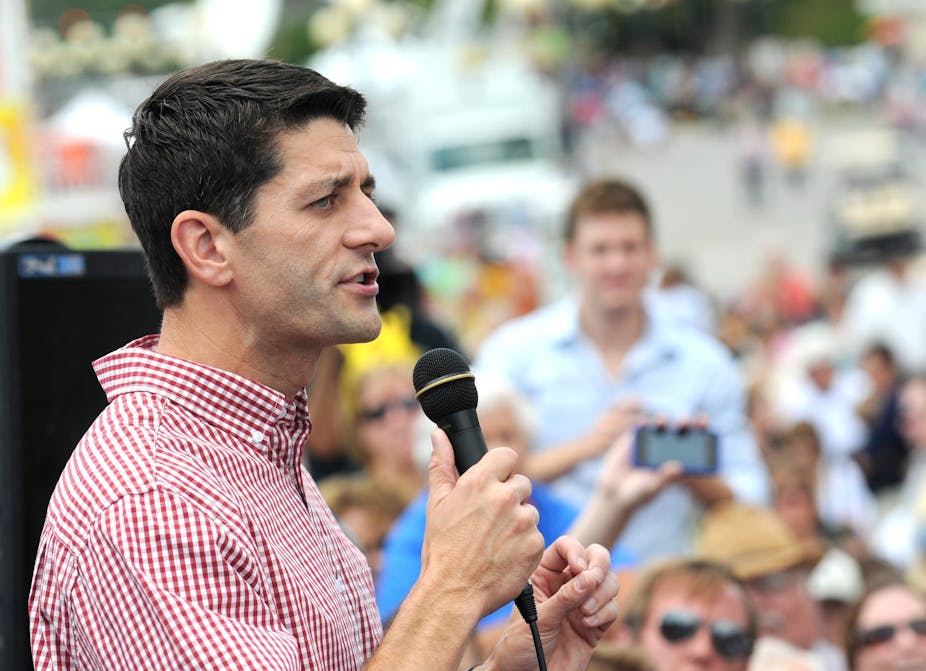Much ink has been spilled over the budget proposals advanced by Mitt Romney’s choice as Vice Presidential running mate, Wisconsin Republican Paul Ryan.
Acting as Chair of the House Budget Committee, Ryan has developed a reputation for bold economic proposals. Perhaps his most striking proposal was contained in one of the first iterations of his plan – termed a “Roadmap to America’s Future” – which “zeroed-out” all taxes on investment and capital gains. This proposal has been at the root of criticisms that affluent Americans, who derive most of their income from investments, would pay essentially no taxes under the Ryan plan. Indeed, Mitt Romney himself advanced this charge during the primary campaign, responding to Newt Gingrich’s calls for such “zeroing out” of taxes on investment income.
To be sure, since the introduction of this specific idea, Ryan has apparently backed away from an explicit call to eliminate taxes on unearned income. In this light – despite the praise he has received for his ostensible rigor – his proposals have become considerably more opaque.
Nevertheless, wherever he winds up on the precise level of capital gains taxes, the philosophy guiding each version of the Ryan has remained constant: investment is the driving force of economic growth, and lower taxes on investment stand to increase growth.
As the most recent version of his plan puts it: “Raising taxes on capital is another idea that purports to affect the wealthy but actually hurts all participants in the economy. Mainstream economics, not to mention common sense, teaches that raising taxes on any activity generally results in less of it … Tax reform should promote savings and investment because more savings and more investment mean a larger stock of capital available for job creation. That means more jobs, more productivity, and higher wages for all American workers.”
It is at this deeper philosophical level where he may be most vulnerable – as these sorts of ideas led directly to the global financial crisis.
Rather than get bogged down in political mudslinging over what Ryan’s plan means for Romney’s individual obligations, it may be more useful to raise the level of discourse by pointing out that the logic and evidence for Ryan’s policy claim are each open to question.
To this end, it is first worth noting that two broad theories of investment and growth exist. One holds, in accord with Ryan’s view, that investors make efficient use of information in seeking out opportunities. John Maynard Keynes famously characterised this view as casting investment as “enterprise”. This holds that investors put their money where it is most likely to benefit themselves — a move which has the added virtue of benefitting the economy as a whole. To be sure, this view is at times a useful guide to trends. Certainly, large-scale investors like Warren Buffett, who have the ability to “sit out” market swings, invest carefully, in ways likely to benefit themselves and the wider economy.
However, a cursory review of asset market trends over the past two decades suggests that market trends have neither been efficient not useful. Since the early 1990s, the global economy has been through a variety of emerging-market booms, the Long Term Capital Management crisis, the dot-com bubble, and the subprime and derivatives manias that led to the global financial crisis. These experiences have led to a renewed interest among economists on the irrationality of investors and the ways in which their choices may reflect not a sense of economic fundamentals, but rather collective psychology.
Reflecting such concerns, Keynes famously also argued for a second way of explaining investment trends: From this perspective, investment may not, as Ryan suggests, be akin to productive enterprise. Instead, it may be driven by speculation. As Keynes drew the contrast, he argued that:
“If I may be allowed to appropriate the term speculation for the activity of forecasting the psychology of the market, and the term enterprise for the activity of forecasting the prospective yield of assets over their whole life, it is by no means always the case that speculation predominates over enterprise.”
And for Keynes, as has been the case over the past two decades: “When the capital development of a country becomes a by-product of the activities of a casino, the job is likely to be ill-done. The measure of success attained by Wall Street… cannot be claimed as one of the outstanding triumphs of laissez-faire capitalism – which is not surprising, if I am right in thinking that the best brains of Wall Street have been in fact directed towards a different object.”
In sum, the biggest problem with the Romney-Ryan vision may be less that it is unfair, than that it is inefficient. Increasing investment which flies off into the speculative atmosphere – which is particularly likely where demand is so anaemic – is unlikely to restore growth. It would be better to reduce taxes on earned income, to enable demand - and so give investors a real outlet for their resources.

